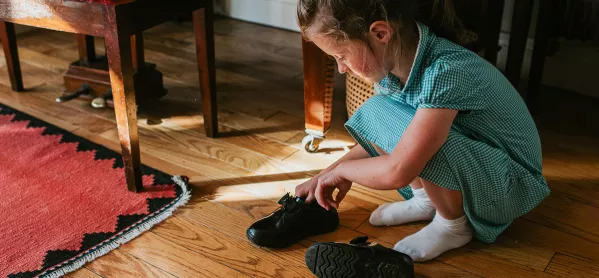Pupils less school-ready this year, say half of teachers

Half of primary school teachers believe this year’s Reception pupils were less ready for school than last year’s, according to a “concerning” poll.
While teachers said that more than one-third of children (35 per cent) were not ready to start Reception by their standards, the vast majority of parents (91 per cent) believed their child was ready for school.
And half of parents (50 per cent) said they believed that toilet training their child was not “solely their job”, according to the poll for early years charity Kindred², which interviewed more than 2,000 state-funded primary school staff and parents.
- Reception: How do we fix the problem of “school readiness”?
- Policy: Headteachers question supervised school toothbrushing plan
- Cost of living: Parents struggling with costs of sending children to school
The term “school ready” is used in the report to describe children being “developmentally ready to access the learning and development opportunities available to them in Reception”.
The report says that factors such as the rising cost of living continue to influence school readiness, with the majority of teachers (82 per cent) anticipating that this will continue to negatively affect school readiness levels in the coming years.
Geoff Barton, general secretary of the Association of School and College Leaders, called the findings “concerning”, adding that more children “appear to be starting primary school without the basic life skills they need”.
“Where families are only able to access limited free childcare, children are more likely to miss out on vital early years learning,” he warned.
Kindred² is calling for “increased parent awareness of school-readiness expectations” because its research, conducted by polling company Savanta, reveals that 43 per cent of parents did not hear about these expectations until their child was aged 4.
It also wants a national conversation about the importance of the early years of development, alongside the sharing of information on the steps that every parent can take to support their child from birth.
Supporting pupils who aren’t school-ready
Half of school staff who responded to the survey (50 per cent) said that the proportion of pupils arriving not ready to start school this year was higher than last year, with only 16 per cent saying it was lower this year.
And teachers are spending 2.5 hours per day, on average, on supporting pupils who are not school-ready, the report warns, leading pupils to lose around one-third of learning time a day.
A quarter of pupils (25 per cent) lacked basic language skills and 37 per cent were unable to dress independently, according to teachers polled.
Cathie Paine, chief executive officer of REAch2 Academy Trust, said: “We are witnessing first-hand the many challenges that schools face with young children’s readiness.”
Ms Paine, who leads the country’s biggest primary-only multi-academy trust, said that “being clear about what we mean by ‘school readiness” and “knowing the best way to support families” is a important challenge that the sector has to face.
Parents ‘need more guidance’
Teachers taking part in the survey expressed concern that parents are often “unaware of the link between milestones and being ready for school”, with more than two-thirds (69 per cent) of teachers calling for more guidance for parents.
And parents wanted practical support to get their children ready for Reception, the poll shows. This included parent orientation for Reception (40 per cent) and access to children’s centres and family hubs (37 per cent).
Felicity Gillespie, director at Kindred², said that the findings should be a “watershed moment for schools and parents because we know that children who are behind before they begin Reception are more likely to struggle throughout life”.
A Department for Education spokesperson said: “We recognise that children’s early years are crucial - which is why we are providing a package of training, qualifications and expert guidance for early years workers, which includes support for them to improve children’s speech, language and communication skills.
“Parents can also access support to help with their child’s development via the government’s Family Hubs and Start for Life programme. This is part of our £300 million investment to transform services for parents, carers, babies and children in 75 local authority areas across England.”
You need a Tes subscription to read this article
Subscribe now to read this article and get other subscriber-only content:
- Unlimited access to all Tes magazine content
- Exclusive subscriber-only stories
- Award-winning email newsletters
Already a subscriber? Log in
You need a subscription to read this article
Subscribe now to read this article and get other subscriber-only content, including:
- Unlimited access to all Tes magazine content
- Exclusive subscriber-only stories
- Award-winning email newsletters



